Berlinale & EFM Review Daily











VERDICT: Sweden-based documentarians Axel Danielson and Maximilien Van Aertryck's first joint feature has lofty ambitions but fails to make any kind of coherent argument.
Boyd van Hoeij, January 24, 2023
After a series of successful shorts and a run as producers at Swedish company Platform Produktion – the company behind Palme d’Or winners The Square and Triangle of Sadness from Ruben Östlund, credited as an executive producer here – Axel Danielson and Maximilien Van Aertryck make the jump to a documentary feature with the enigmatically titled And the King Said, What a Fantastic Machine. The machine of the title turns out to be the camera, of which the two create a kind of biography through the ages, from the camera obscura to the omnipresent smartphone cameras. Though it contains a handful of impressive scenes, with much of the footage culled from the internet, what’s lacking is an overall discourse, turning this film into an anecdotal trip through moving-image land Full Review
The Film Verdict: How does it feel to have a fullscale edition again after two pandemic-influenced years, especially for a festival that is more audienceoriented than, say, Cannes or Venice?
Carlo Chatrian: It’s very important to be back to normal, because the last two winters were very tricky for people organizing public events, especially in Germany where Covid waves were quite severe. And, as you said, it’s important for us because the festival isn’t just aimed at professionals. We did have an audience last year, and sold 150,000 tickets, but the European Film Market was digital, so now we get to have all the different elements and strengths of the Berlinale together again, at last.
TFV: Is there anything from the past two years that you have retained, as far as putting the festival together is concerned?
(Continues next page)

CC: Yes, undoubtedly. I think the festival evolves when it deals with challenges. In terms of the organization, something my colleagues and I learned is that you can do the work without traveling eight months a year, and you can be more selective with your trips.
And working remotely is a viable option, provided it’s not the only one, that can also save time, so you don’t always have to walk from one office to another, especially when working in the city. On a programming level, because theaters were not continuously open in the past two years, we chose to screen films that will be released in German cinemas right after the festival. I’m not sure they would all have been included in the line-up, say, five years ago.
TFV: Berlin has always been more relaxed about world premieres outside of the main competition. Is it important for you to bring The Fabelmans and Tár to audiences even though they’re not world exclusives?
CC: I mean, that’s the key aspect of the Berlinale Special section: it has no rules, no submissions. The Artistic Director decides which films to invite. The Fabelmans is celebrating its German premiere as part of our tribute to Steven Spielberg. Usually, the Honorary Golden Bear is accompanied by a legacy film but, as with Isabelle Huppert last year, we had the chance to show their latest work. It’s also a film about the love for the big screen, and I think it speaks to audiences because that’s what happens in the movie with all the films Sammy makes. As for Tár, it’s a film with strong ties to the city, so it seemed appropriate to screen it ahead of its general release in Germany. Todd Field is also going to unveil a new short film, The Fundraiser, which expands on the world depicted in Tár
(Continues next page)


Simone Baumann, Managing Director of German Film Service and Marketing, and producer hails from Zchopau, Germany. She studied philosophy in Rostov Upon the Don and worked in Moscow in the early 1990’s. Baumann was a lecturer at Berlin’s prestigious Humboldt University and later she began a successful career in documentary film with Leipzig based broadcaster MDR. In 1997 she joined Le Vision an independent film company where she spent 10 years overseeing the Russian operations. In 2011 she worked as an executive producer for Saxonia Entertainment responsible for the documentary sector and later joined German Films Service and Marketing or Eastern Europe where she rose to her current position as Managing Director since 2019. She sat down with The Film Verdict just prior to Berlin and shared her own unique perspectives on current affairs and German Films.
(Continues page 6)
TFV: There’s also a twofold tribute to Disney: a short film program in Berlinale Special, and the restored version of Cinderella, which played at the very first Berlinale, in Generation. Even though some of the shorts are a bit obscure, you can see most of these films on Disney+. Do you trust audiences to come out and (re)watch them in the cinema?

CC: I do. Before I became the Artistic Director of Locarno, I was in charge of that festival’s retrospectives, and it was always the better-known films that drew the largest crowds. In a festival context, there’s always something special about seeing these films with an audience. Yes, you can see Cinderella at home, but it’s not going to be the new restoration,
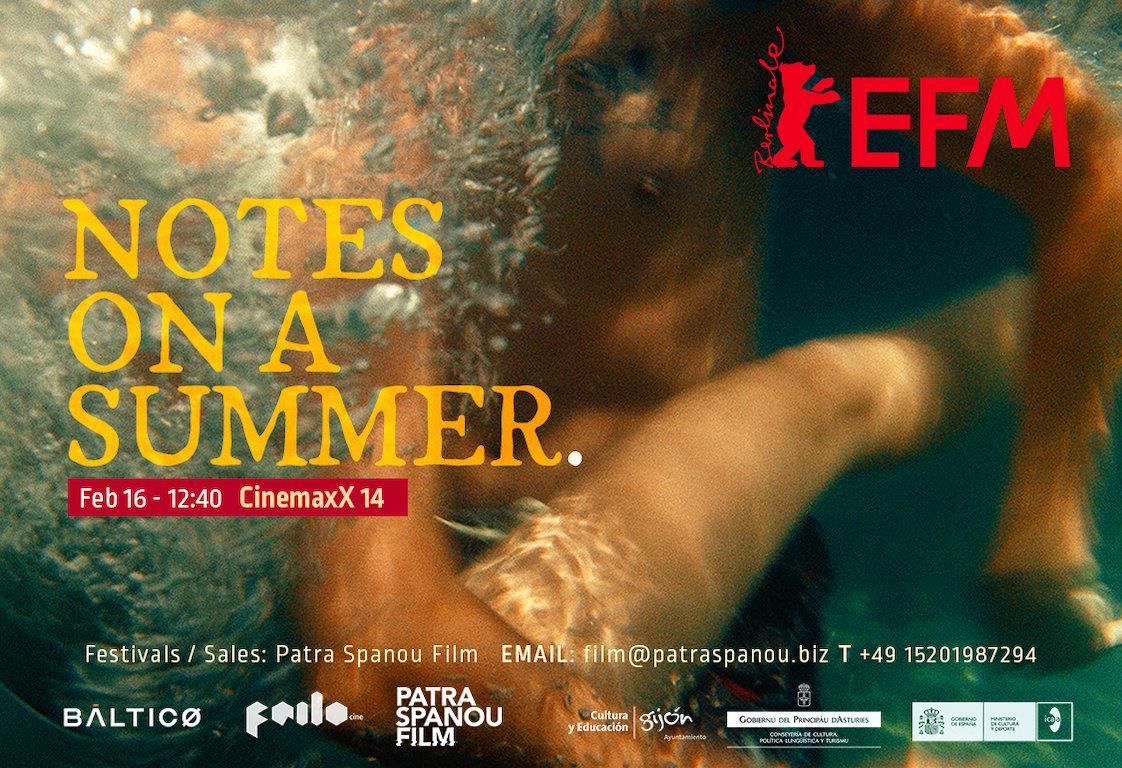
introduced by the President of Walt Disney Animation Studios
We first discussed this last April, in Los Angeles, to have a tribute for the 100th anniversary of the animation studio, as part of a festival that has screened many of their films over the years. The short film program is an overview of the evolution of animation, from 1923 to the present day, with some lesser-known titles and more room for technical experimentation. Besides, it’s not going to be the same experience as when one first saw these films, because we change over time and so do they.
TFV: There are, of course, multiple films dealing with the situation in Ukraine. Are there any other recurring thematic threads in this year’s selection?
CC: Certainly, and I hope that, aside from those I’m about to
mention, the audience and the most animated films we’ve ever press will identify even more of them. Youth is a very important theme, ranging from the retrospective about coming-ofage films to there being three directorial debuts in Competition.
In terms of narrative forms, this might be the edition with the (Continues page 17)
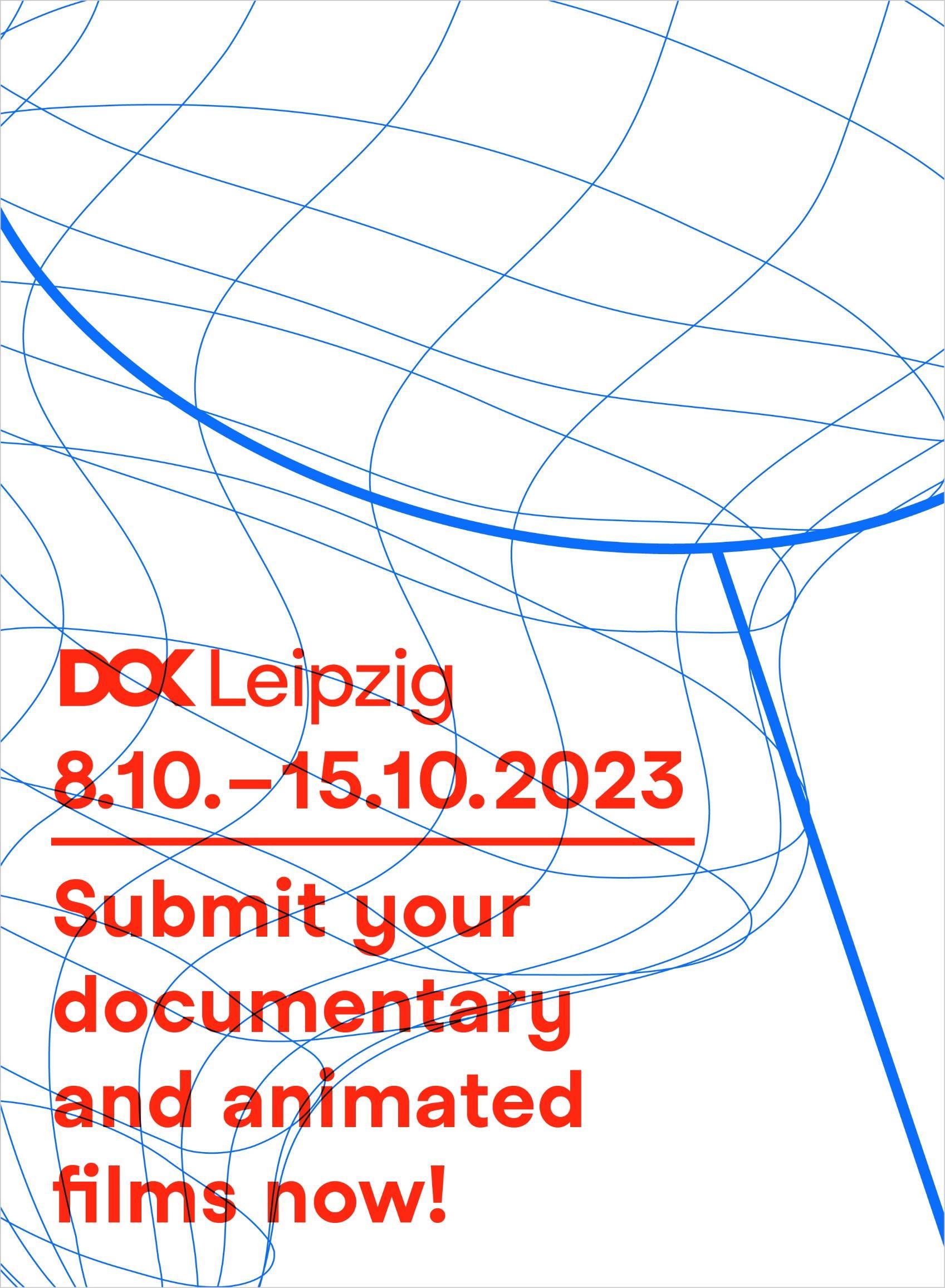
TFV: Thank you for taking the time to make this chat with us before you travel to Berlin. I first wish to start with you and your background. Your leadership at German Films started almost four years ago and before that you had 25 years’ experience as a producer with a very unique background as one of the foremost experts on Russia, the former Eastern Bloc and their audiovisual markets – all of this brings such a major advantage to German Films. But what is the one major part of your experience in the industry that has become such an asset for you leading German Films?
SB: I think that my producers background is really an advantage. I better understand the process and also the difficulties of financing and realizing theatrical projects. On the other hand the marketing of films has more and more shifted to earlier stages of production. Today it is too late to start promoting the film after it is finished. You have to start in a rough cut stage or even earlier with pitching sessions, works in progress, upcoming projects, etc. This is the place where festival programmers and world sales are looking for new projects.
Also, having previously worked for Eastern Europa as a foreign representative for more than 15 years, when taking the job at German Films, the activities weren’t completely new for me.

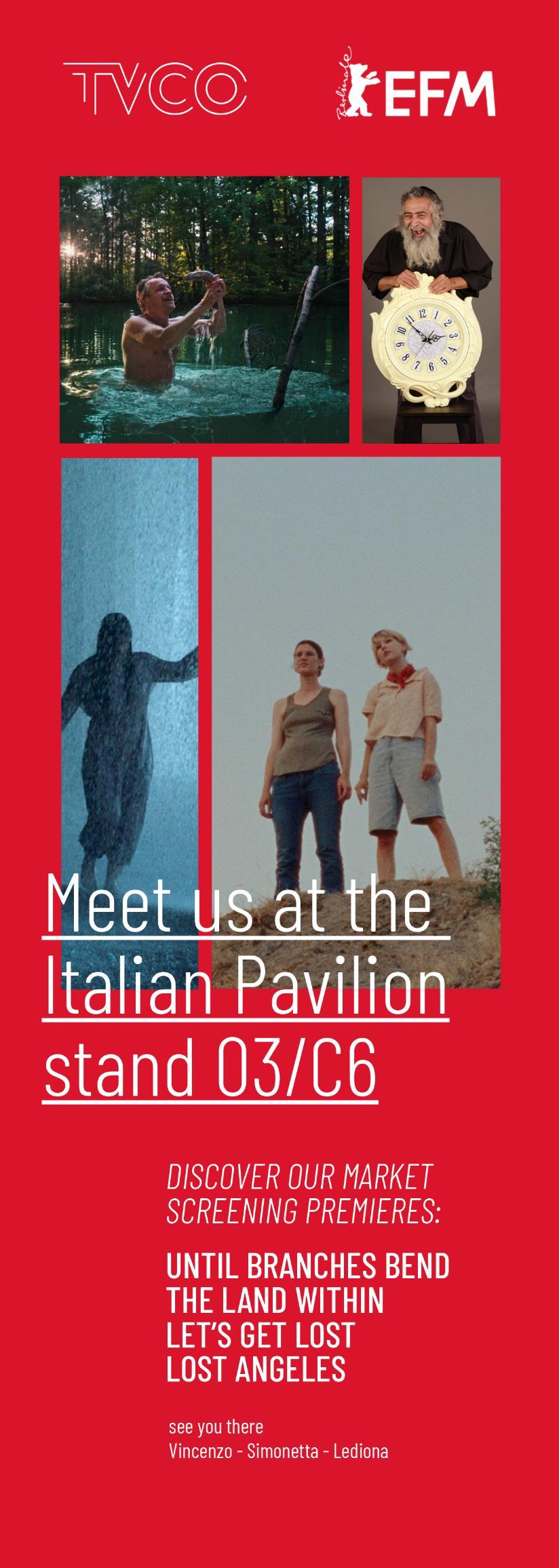
TFV: With your unique insight into Russia and with Russia dominating the news and headlines these days, looking past those headlines and the television news, what do you think Russian filmmakers and audiovisual professionals are deeply feeling? Some festivals have declared a boycott or a suspension of showing Russian made films now, or
INGEBORG BACHMANN - REISE IN DIE WÜSTE – In Competition

at least until Ukraine war is over, do you feel that is the correct approach? And if so, what does it achieve?
SB: I think that the situation of Russian filmmakers is very different. Many of them who are against the war in Ukraine have left the country. As immigrants, they are struggling with the new situation, having to adapt to a new country, a new language and a different system of financing new projects. Because their creative future is now outside of Russia, this will take some time.
But there are also many filmmakers who are staying in Russia and supporting the system and the war –and getting financed by State money etc. I don´t think that these are the people we are going to be working with in the future.
In fact, the red line is not the Russian passport, but the type of project and the financing behind it. From this point of view, state financing of an aggressor state is unacceptable, since it is a part of the propaganda. The same with private money from oligarchs who are not independent from the Russian state.
Of course we now have a bunch of Russian films by known filmmakers that were financed and realized with state money before the war and have a certain artistic quality.
But now, with the war going on, is not the time to promote them. Russia is using any kind of culture for its propaganda – also this film. Not a satisfying situation for this filmmaker, but the reality.

TFV: Since you took over the reins at German Films, the organization seems to be much more forward looking, many more incentives, and much more open in general, tell us your vision, goals and ambitions for German Films?
(Continues page 15)
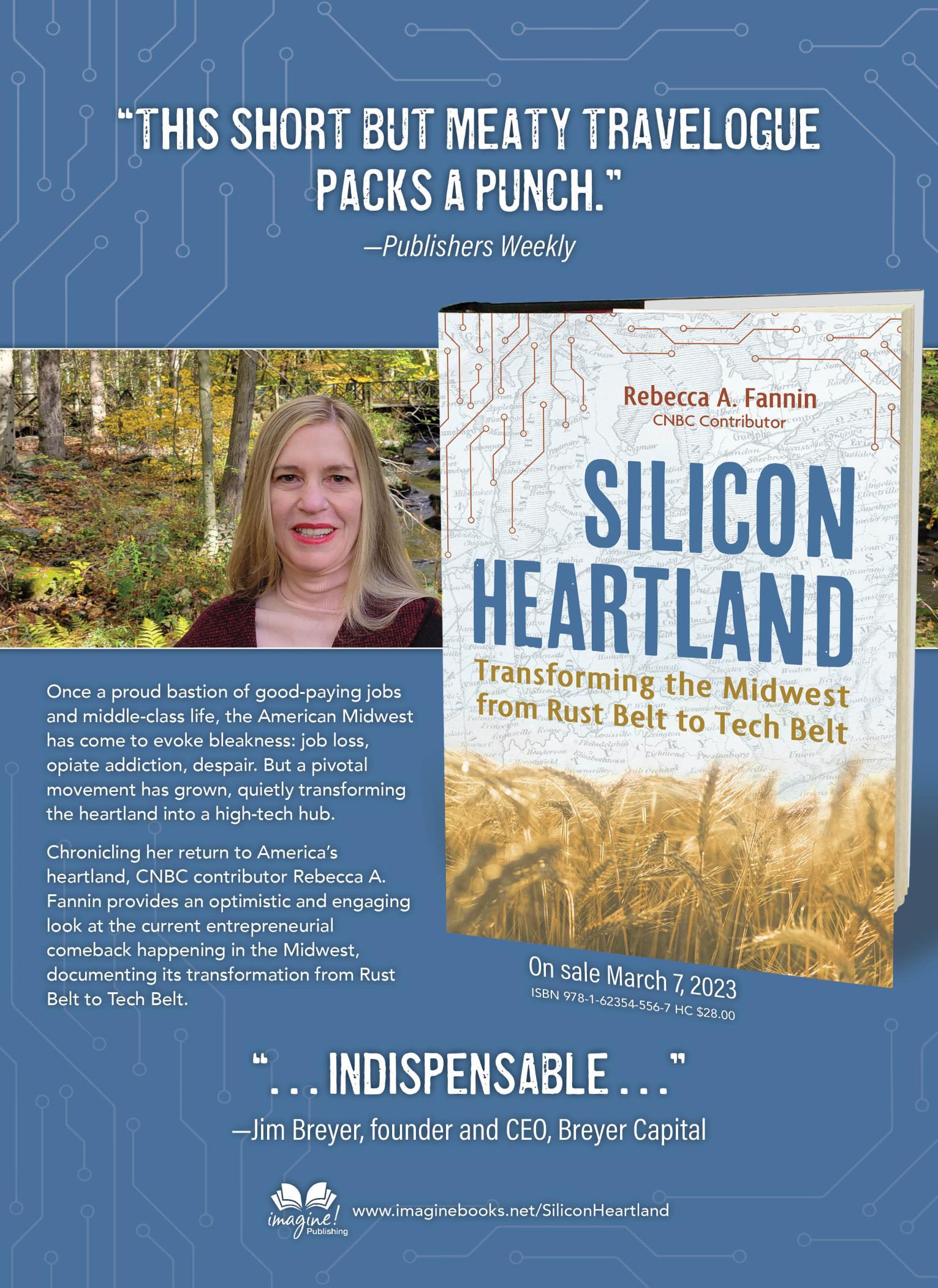
VERDICT: The downing of Malaysian Airlines’ passenger flight MH17 in 2014 over Russian-occupied territory in Ukraine becomes a prophetic and highly symbolic event portending the current war and its methods in Roman Liubyi’s doc, whose poetry can seem forced but is still capable of shocking.

Deborah Young, February 15, 2023
A lot has happened since a Malaysian passenger jet disappeared over the skies in Ukraine in July 2014 – over the
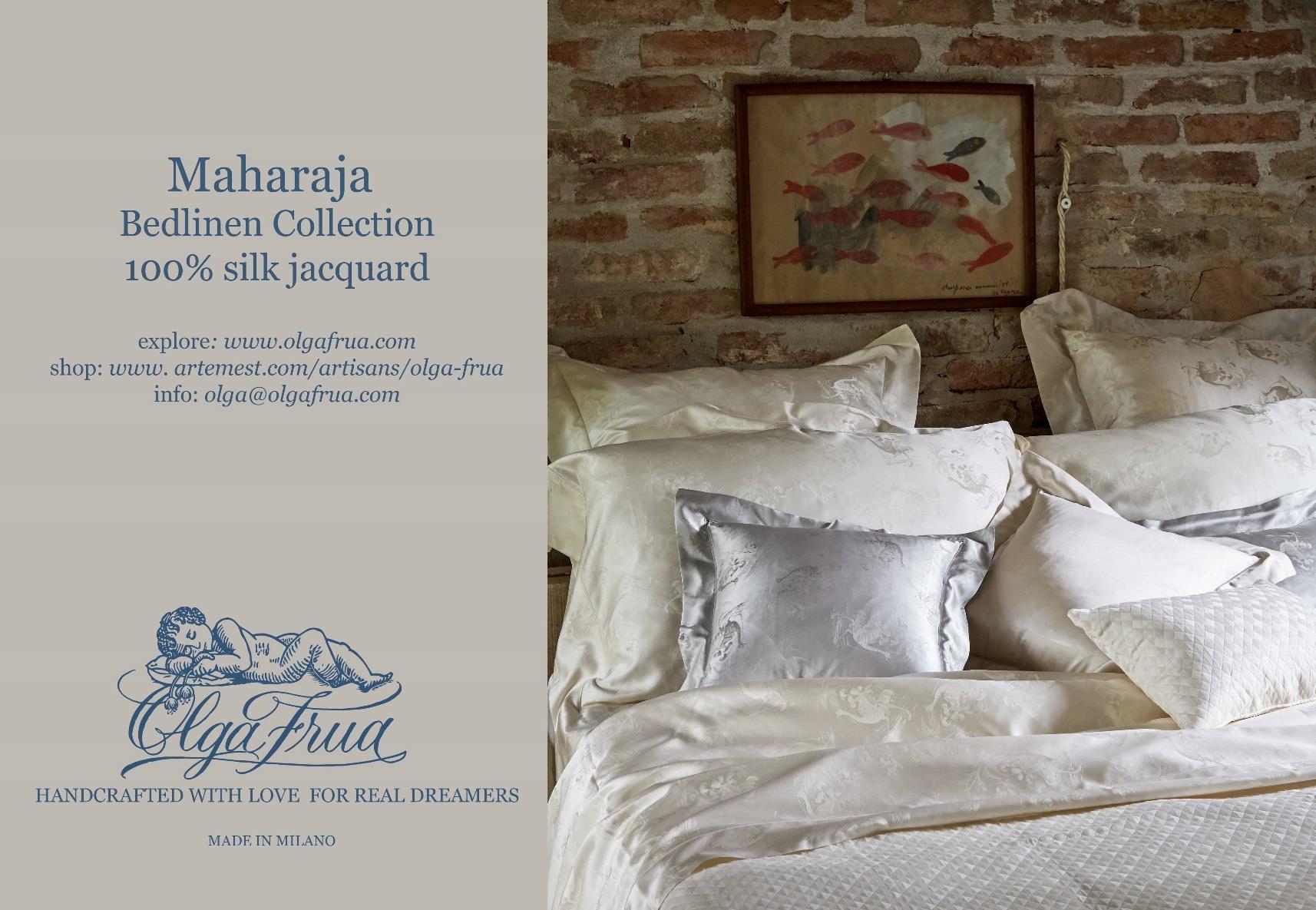
lands of Luhansk and Donetsk that Russia had recently occupied, to be precise – and Roman Liubyi’s fraught but sensitive doc, Iron Butterflies, draws a straight line from that terrible event to the allout warfare of the present-day invasion. While largely sidestepping the morbid fascination of plane crashes (this one killed all 298 people on board), the filmmaker doggedly circles around the tragedy’s political and military implications and its aftermath, dominated by a Russian disinformation campaign designed to cast blame elsewhere.
The film recreates the drama from multiple viewpoints, including clips of the Russian special forces who were ultimately shown to have shot down the plane after mistaking it for a Ukrainian military transport. Full Review
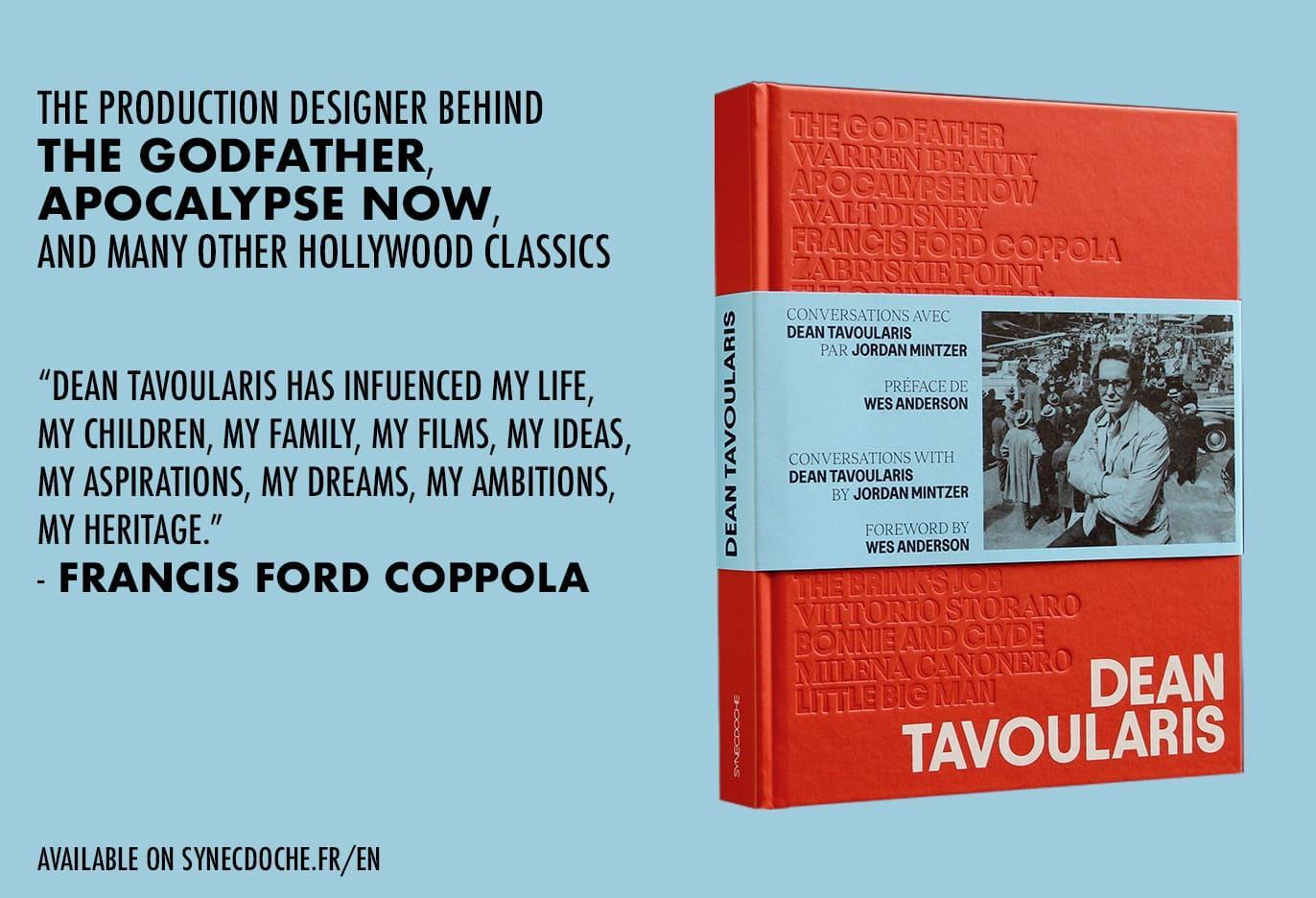
Lukas Dhont’s Close was the big winner at the Ensors Ceremony, the Flemish speaking Academy Awards® equivalents.
Close, which is nominated for the Oscar® for Best International Feature and France’s César® for Best Foreign Film, took home six Ensor statuettes: Best Feature, Best Director, Best Screenplay (Angelo Tijssens and Lukas Dhont), Best Performance (Eden Dambrine), Best D.O.P (Frank van den Eeden) and Best Sound (Yanna Soentjens and Vincent Sinceretti)

Close had already won several awards, including the Grand Prix at the Cannes Film Festival. The film is released by A24 in the US, Diaphana in France, MUBI in the UK and Ireland (release: 3 March) and Lumière in Benelux, with The Match Factory representing international sales.

The foremost film-related happening in the Nordics had a very eventful 47th edition (January 27 – February 5).


way to signal that movies were back in full force, after two editions affected by the global health crisis.
That it was going to be yet another memorably unconventional year for the Gothenburg Film Festival – which is well-known for defying expectations became clear the minute Ruben Östlund was announced as the new Honorary President. The director of the Palme d’Or winners The Square and Triangle of Sadness is arguably the Swedish city’s favorite enfant terrible. After his hypnosis-enhanced viewings last year and 2021’s pandemic-friendly choice of having one lucky spectator all alone on an island in the Gothenburg archipelago, he had a new trick up his sleeve: “directing” the audience during a special screening of Triangle of Sadness, a film that elicits strong reactions in its own right and made for an even more immersive experience with its maker on the premises. Participants were selected via an online questionnaire, and selection criteria included their voting history and what they consider appropriate behavior in a cinema. Östlund also pulled a smaller-scale version of the stunt during the opening ceremony, perhaps as a

Not that Gothenburg has completely given up on some of the pandemic-induced changes. Fully embracing the versatile nature of the contemporary moviegoing experience, the festival retained an online option for select titles in its line-up, making a handful of them available each day on its streaming service Draken Film. Many of them were part of the International Competition, whose winner is determined by the audience (this year’s top choice was Maryam Touzani’s The Blue Caftan, which continues its successful festival tour).
the ideal bookend to an edition that began with Exodus, a comingof-age story about a young refugee girl who attempts to reach Scandinavia (specifically Sweden).
The relationship between screens was further highlighted by the choice of closing film: Camino, a Danish drama about fatherdaughter relationships which received a theatrical premiere at the festival before heading to streaming, as part of the Nordic service Viaplay’s foray into original productions. The film, in which two Danes embark on a pilgrimage on the Camino de Santiago in Spain to fulfil a loved one’s dying wish, also served as
On the awards side, and counter to the widespread belief that critics and audience members are on opposite ends of the moviegoing spectrum, the big winner of the 2023 edition was the Norwegian drama Ellos Eatnu – Let the River Flow, which received both the FIPRESCI Prize and the Audience Award for the Nordic Competition. That’s a strong endorsement for a film that is rooted in true events and uses the past to discuss the present conditions of Sami rights in Norway. It illustrates the recent national tradition of telling compelling stories that don’t necessarily conform to the usual tenets of the local industry (as seen with the country’s most recent Oscar submission War Sailor, an ambitious and expensive period piece shot entirely in the not-so-cinematic Bergen dialect).
The other major awards were split between Denmark and Finland, emphasizing the strengths of both (Continues page17)
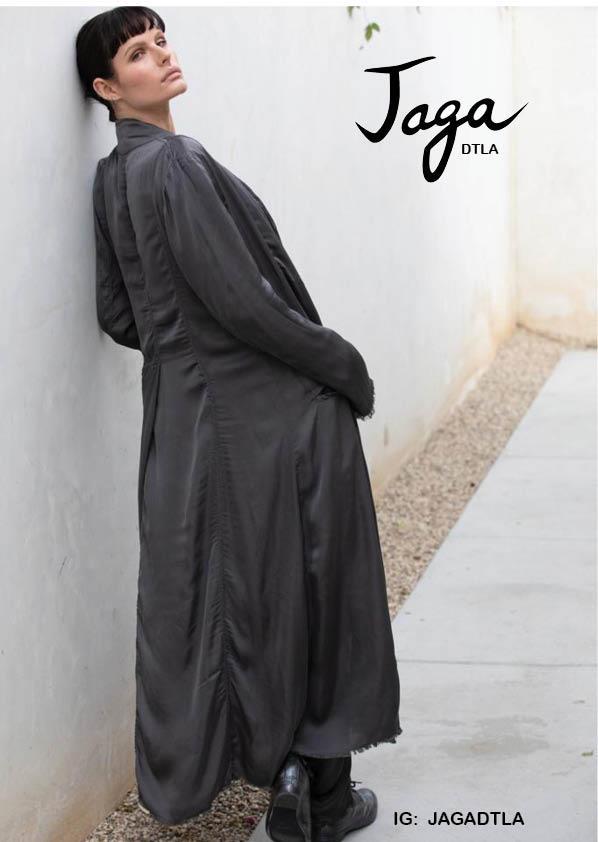
Acquisition begins with a TFV Review
When It Melts
VERDICT: A hard-hitting and very cruel story of youth from Belgian actress turned first-time director Veerle Baetens.
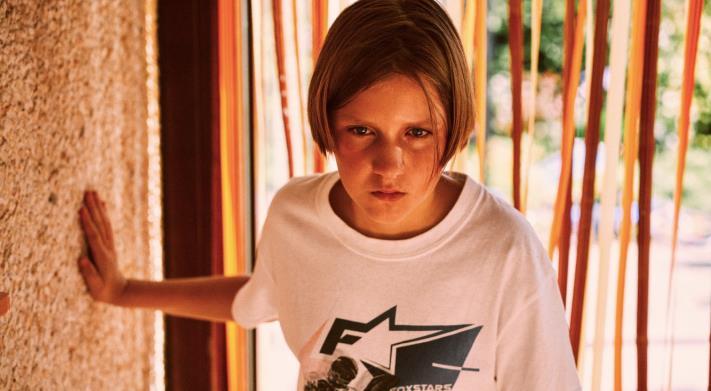
4:00 CinemaxX 9 The Party Film Sales
Dark Satellites
(Beta Cinema) | 10:00Virtual Cinema 2
Let The River Flow
(Beta Cinema) | 1:00 CinemaxX 18
Norwegian Dream (True Colours) | 1:15 CinemaxX 5
Girl
(New Europe Film Sales) | 2:20 CinemaxX 9
Notes on a Summer (Patra Spanou Film)
Diabolik – Ginko Attacks!
(Beta Cinema) | 3:00 CinemaxX 10
The Elderly
(Filmax) | 3:45 CinemaxX 2
Let the Dance Begin
(True Colours) | 4:00 CinemaxX 17
Sea Sparkle
(LevelK) | 4:45. CinemaxX 7
Girl Unknown
(Filmax) | 6:00 CinemxX 16

Four Little Adults
VERDICT: This entertaining rom-com offers a freshly subversive, anti-bourgeois twist on the genre, as a pastor and politician in Helsinki open up their marriage to non-monogamy.
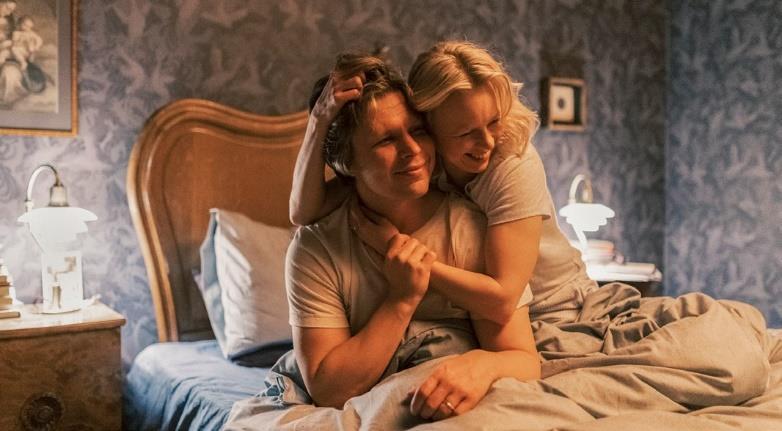
6:30 CinemaxX 12 Level K For Complete Screening Guide, click here
12:40 CinemaxX 14
Acquisition begins with a TFV Review
Four’s a Crowd
Friday, 17 February
Select Screenings
Smoke Sauna Sisterhood
(Filmax) | 4:10. CinemaxX 16
Dancing Queen
(LevelK) | 4:30. CinemaxX 4
Let’s Get Lost (TVCO)
4:45 CinemaxX 9
A Love Story
(Le Pacte) | 6:45 CinemaxX 17
The Fox
VERDICT: An intimate,visceral immersion into the rituals of the Estonian smoke sauna, a healing space where women confide in one another

09:30 CinemaxX 18 Autlook Filmsales

Irati
(Filmax) 09:15. CinemaxX 14
First Snow of Summer (Picture Tree International) 10:45 CinemaxX 2
A Compassionate Spy (Autlook Filmsales) 11:10. CinemaxX 18
Silver Haze
(New Europe Film Sales) 11:10. CinemaxX 6
Blue Giant (Toho)
12:35 CinemaxX 9
(Beta Cinema) | 7:00 CinemaxX 2
The Store
VERDICT: Director Ami-Ro Sköld blends live action with stop-motion animation in this impressive social drama, which takes place in a Swedish supermarket.

11:20 CinemaxX 14 Fandango
For Complete Screening Guide, click here
SB: As I already mentioned we should start the promotion at an earlier stage. So now we have a couple of cooperations with institutions like ACE, Torino Filmlab, the European Producers Club and Rotterdam Lab, but we also support German projects who make it to the selection of Works in Progress in Les Arcs for example. So we try to be more present at the Industry part of festivals.
Another important part is the talent promotion. We extended our Face to Face talent campaign from only directors and actors to writers, editors, composers etc. Film is teamwork and Germany has a lot of great talent in all areas of film production. Despite the IP of a film today the talent behind it is one of the biggest values.
TFV: You are on your way to Berlin with many initiatives; what is your focus in Berlin?
SB: We have a huge lineup of German Films at Berlinale - more than 30 majority German films, 4 of them in competition - so there is a lot to promote. Then we are starting our new 2023 Face to Face campaign in Berlin – with great new talents.
And we also have a lot of meetings with our partners, festivals and other organisations.
One thing I want to admit is that we are supporting the Ukrainian filmmakers – so we co-financed the Ukrainian stand at EFM and we will be a part of some events with Ukrainian filmmakers.
TFV: How is German Films success measured by its Board and by you?
have 9 nominations for “All Quiet on the Western front” by Edward Berger.
But success today is much broader than this. We should also look at the number of successful coproductions like “Holy Spider,” and also realize that German filmmakers today are working worldwide in many international projects. So Germany is really a global player in that sense.
TFV: Over your 25-year career, you witnessed, as many did, significant changes in Germany. How did those changes affect German filmmakers of today?
SB: This is not an easy question. Of course there are the classical success elements like festival participation and international awards, but also the box office of German films outside of Germany. The box office didn’t look so bad even in Covid times, thanks to our Animation and titles like “Spencer”. For the competition in A festivals there are always complaints that we never have a film in the Cannes competition – which we haven’t had very often – the last one being “Toni Erdmann” by Marion Ade. But on the other hand we always have good films in other A competitions like Karlovy Vary or Locarno. For example, the film “Piaffe” by Ann Oren in 2022 was in the Locarno competition and later in 80 other festivals
Of course the Oscars are another story – last year we had “I am your Man” by Maria Schrader on the short list and this year we
SB: I think that German films today are much more diverse by the choice of subject, but also by the people who are making these films. It is not only about the Second World War, but also about the younger German history – like the GDR, the reunification and more contemporary subjects. In recent years we have more films dealing with the life of people with a different cultural background in Germany, like “Elaha” by Milena Aboyan in the Berlinale Perspektive section.
Today the more established filmmakers like Christian Petzold or Margarete von Trotta present their films at Berlinale as well as the younger generation like Ayse Polat or Ilker Catak.

Other big differences are changes which came with the series boom and projects like “Dark” by Baran bo Odar and Jantje Friese or “Babylon Berlin” by Tom Tykwer, Achim von Borries and Hendrik Handlogten.
Then we have filmmakers like Robert Schwentke, who are (Continues next page)

working mainly in the US, but also shooting German films. Schwentke is now at Berlinale with “Seneca”.

TFV: Is it true that this year’s German Academy Award selection committee was all women? If this is so, was that a conscious choice to have an allwomen selection committee? And they chose All Quiet on the Western Front, a remarkable film with 9 nominations – what does this selection tell you by a committee made up of all women?
SB: It is true that it was an all women committee with Maria Furtwängler as the Chair woman. This happened by
chance, since the committee members are selected by the Unions and the German Film Academy, who have the seats in the committee. At the end it turned out that we had 9 women selecting the film which would represent Germany for the Best International Feature. It was also a surprise for us. But I have to say that is was a very professional process choosing the film during a very interesting discussion. It was clear that they would select the film that had the best chances for an Oscar in a competition for an American film award.
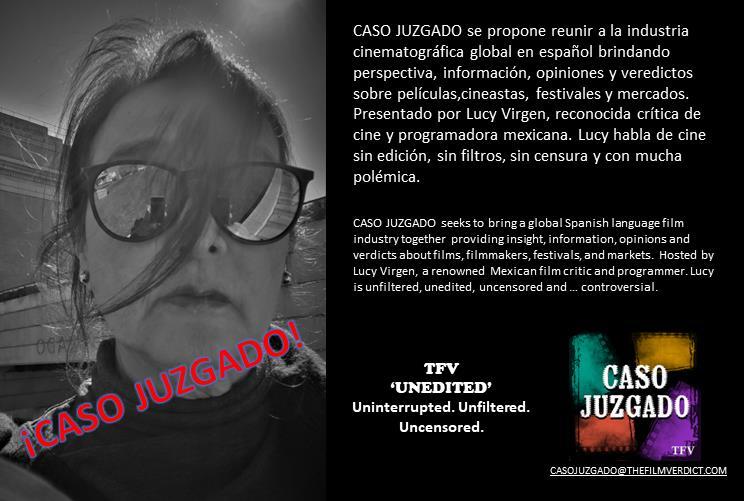
TFV: Since we know your time is limited; Who will take home the Oscar statue this year?
SB: I think that “All Quiet on the Western Front” will take at least one Oscar – hopefully more.
TFV: Simone, thank you very much for your time, in closing, is there anything else you would like to add before you rush off to Berlin…
SB: I really hope that Berlinale is going to be a very successful festival, a fest celebrating cinema with old and new talents. My Berlinale colleagues had a hard time with 2 difficult Covid editions – so hopefully they will be back with new energy and good films.
nations: the Dragon Award for Best Film went to Unruly, a gripping fact-based account of women being institutionalized in the 1930s for sexual promiscuity (which was deemed a mental illness by Danish high society at the time), while the Sven Nykvist Cinematography Award was bestowed upon Jacob Møller for his work on Copenhagen Does Not Exist, a character study and fascinating piece of genre filmmaking where the unraveling of a relationship is evoked via a peculiar interrogation. As for the Acting Award, it recognized the talent of Finnish-Swedish actress Alma Pöysti (soon to be seen in Aki Kaurismäki’s new project), who flexed her Finnish-language performing muscles in Selma Vilhunen’s Four Little Adults, a clever drama about polyamory as the solution to keeping a marriage intact in the wake of adultery. And while other festivals, mainly in North America, are making a point of burying any potential controversy, Gothenburg embraced its nature as a place of openness and honesty with a riveting conversation with Austrian director Marie Kreutzer, who tearfully and sincerely addressed the difficulties currently haunting her film Corsage, which was pulled from cinemas in Vienna (and is no longer scheduled for release in some territories) due to actor Florian Teichtmeister being charged with possession of child pornography. A very human moment, highlighting the warmth of a festival set against the backdrop of the Nordic winter.
had: two in Competition, one in Encounters, two in Generation, the opening film of the Panorama section… It’s great to have so much variety embodied by animation.
TFV: You mentioned the retrospective, which is unusual in that each film was chosen by a filmmaker or actor, many of whom with ties to the festival. What was it like to have them as co-curators?
CC: That came about when we chose to focus on the subject of coming of age, which is a wideranging topic. We decided that, rather than doing an arbitrary selection of our own, we could ask these filmmakers, some of whom have tackled the subject, to choose their favorite film. Many of them have been at the Berlinale, and even won awards, but there’s also the likes of Pedro Almodóvar. He’s never attended the festival, but we thought it would be interesting to have his take on this.
TFV: If you had been tasked with picking one film for the section, which one would you have chosen?
CC: We did discuss this, and I eventually decided not to participate. That being said, I think I’d go with Truffaut’s The 400 Blows. Antoine Doinel is nothing like me, so there’s no projection on my end, but I still feel emotionally connected to his journey. To me, coming of age means taking control of the world, and that’s what Antoine does, even though there are cranks in his confident exterior, which is the beauty of Truffaut’s writing. And the final sequence also has a sense of discovery, which is the essence of cinema.
